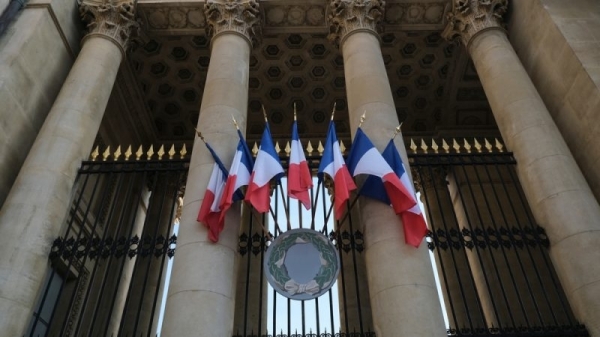French left divided over a resolution condemning Israeli ‘apartheid regime’

The communist motion for a resolution condemning Israel’s “apartheid” of Palestinians and calling for an economic boycott of the country was rejected by the French National Assembly on Thursday, which rekindled differences on the left of the political spectrum.
The French National Assembly discussed a resolution tabled by the French Communist Party (PCF) and part of the radical-left party La France insoumise (LFI) condemning the “apartheid regime” that Israel has instituted towards the Palestinian people.
The text also called the French government to “act to put an end to colonisation” and the “apartheid regime”, to recognise the Palestinian state, and to draft legalisation to boycott Israeli products.
It is primarily the “colonial policy” of the State of Israel that motivates this position, explained the PCF MP Jean-Paul Lecoq during the debate.
For the LFI group, Ersilia Soudais stressed the importance of the resolution because “the internal struggle for Israeli democracy cannot succeed without an end to apartheid and colonisation”.
“We should not be afraid of words, they allow us to understand the reality”, she said to justify using the word “apartheid”.
On the Socialist benches, the resolution caused some embarrassment as MP Jérôme Guedj voted against the text.
Speaking on behalf of the party and addressing his left-wing allies, he said that “by using the notion of apartheid […] you are undermining the cause you claim to be able to defend” – while denouncing the colonisation of the Palestinian territories and “the illiberal drift” of the Israeli government.
In similar terms, a press release from the Socialist Party published the day before the vote “rejects and condemns the use of the word apartheid” as well as the call for the “legalisation of the boycott against Israeli products”, which would be discrimination.
The Socialist Party thus found itself isolated from its allies in the PCF, LFI and the few ecologists present (8 out of 23) who voted in favour of the text. The presidential majority (Renaissance, Horizons and Modem), the right (Les Républicains) and the far right (Rassemblement national) denounced the resolution of that part of the left and opposed the text.
As a result, the text was rejected, with 71 votes “for” and 199 “against”.
Attacks from the centrists and the right
Although the resolutions are not legally binding, the exchanges were lively. In addition to the doubts expressed by the socialist left, the debate was an opportunity for the left-wing coalition’s (NUPES) opponents to attack part of the left.
The president of Macron’s Renaissance group Aurore Bergé accused the signatories of the text of “hurting Israeli citizens” and “insulting the memory of the countless victims of this regime [the apartheid]”, adding that Israeli Arabs “live fully as citizens of the State of Israel”.
The leader of the majority parliamentarians denounced the “anti-Zionist” character of the text, pointing out the “obsession” with Israel of her left-wing colleagues and their lack of initiative in denouncing the deteriorating human rights situation in Syria, Yemen, or in China regarding the repression of Uyghurs.
The resolution would reflect “a binary and outrageous vision” of the relationship between Israelis and Palestinians, according to Annie Genevard, Les Républicains MP and secretary general of the right-wing party.
Speaking on behalf of the government, the Secretary of State for Europe Laurence Boone said “The misuse of the dead does not serve the cause of peace”.
However, a point of agreement remains between France’s official and constant position – recalled by Laurence Boone -, the communist resolution and the PS communiqué, which all call for a peace process based on the creation of two sovereign states, Israel and Palestine.
(Davide Basso | EURACTIV.fr)
Read more with EURACTIV




